‘We are going to die’: Food shortages worsen Sri Lanka crisis
The prime minister warns of a food crisis after ban on chemical fertilisers by the previous government drastically cut crop yields.
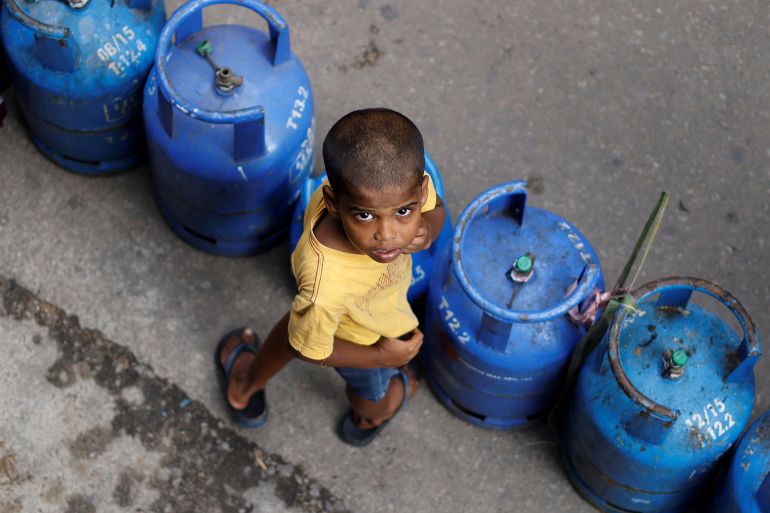
Sri Lanka’s prime minister has warned of a food shortage as the island nation battles a devastating economic crisis and promises to buy enough fertiliser for the next planting season to boost harvests.
A decision in April last year by President Gotabaya Rajapaksa to ban all chemical fertilisers drastically cut crop yields and although the government has reversed the ban, no substantial imports have yet taken place.
Keep reading
list of 4 itemsSri Lanka faces ‘man-made’ food crisis as farmers stop planting
Sri Lanka slips into default, central bank head agrees to stay on
Rajapaksa not only needs to go, he needs to face accountability
“While there may not be time to obtain fertiliser for this Yala [May-August] season, steps are being taken to ensure adequate stocks for the Maha [September-March] season,” Prime Minister Ranil Wickremesinghe said in a message on Twitter late on Thursday.
“I sincerely urge everyone to accept the gravity of the … situation.”
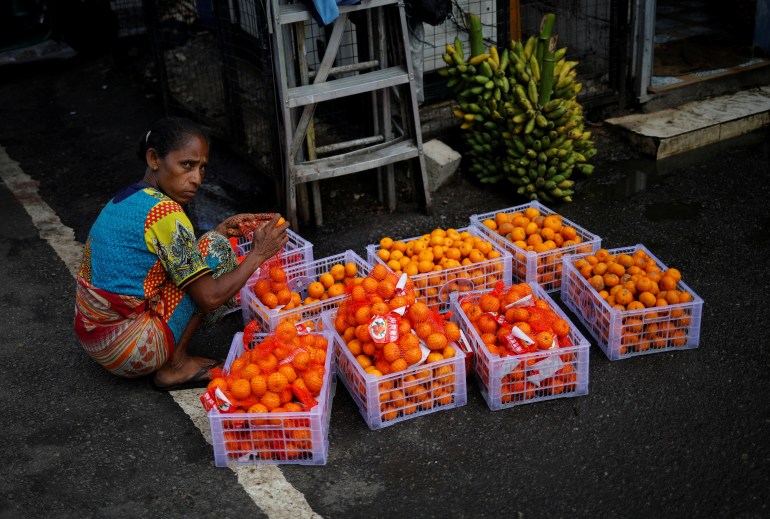
Cabinet expanded
President Rajapaksa appointed nine new members to the cabinet on Friday, including to the critical health, trade and tourism ministries.
The new ministers for the critical health, trade and tourism departments were sworn in by the president at his tightly-guarded official residence in Colombo, the government said in a brief statement.
Two legislators from the main opposition SJB party broke ranks to join the new government. Another opposition party, the Sri Lanka Freedom Party, agreed to support President Rajapaksa and was given one portfolio.
However, the finance position – which will bring with it responsibility for leading negotiations with the International Monetary Fund (IMF) over a bailout – remains vacant.
There are speculations that the portfolio is likely to be retained by Wickremesinghe.
The delay in announcing a finance minister could hinder Sri Lanka’s negotiations with the IMF, the central bank chief warned on Thursday.
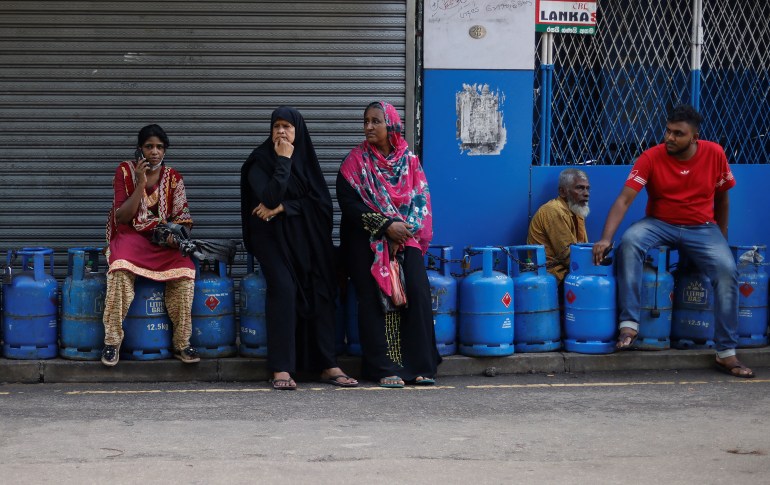
Tourism-dependent Sri Lanka is facing a dire shortage of foreign exchange, fuel and medicines, and economic activity has slowed to a crawl.
‘We are going to die’
“There is no point in talking about how hard life is,” said APD Sumanavathi, a 60-year-old woman selling fruit and vegetables in the Pettah market in Colombo, the commercial capital. “I can’t predict how things will be in two months, at this rate we might not even be here.”
Nearby, a long queue had formed in front of a shop selling cooking gas cylinders, the prices of which have soared to nearly 5,000 rupees ($14) from 2,675 rupees ($8) in April.
“Only about 200 cylinders were delivered, even though there were about 500 people,” said Mohammad Shazly, a part-time chauffeur in the queue for the third day in the hope of cooking for his family of five.
“Without gas, without kerosene oil, we can’t do anything,” he said. “Last option what? Without food we are going to die. That will happen 100 percent.”
The central bank governor said on Thursday foreign exchange had been secured from a World Bank loan and remittances to pay for fuel and cooking gas shipments, but supplies are still to flow through.
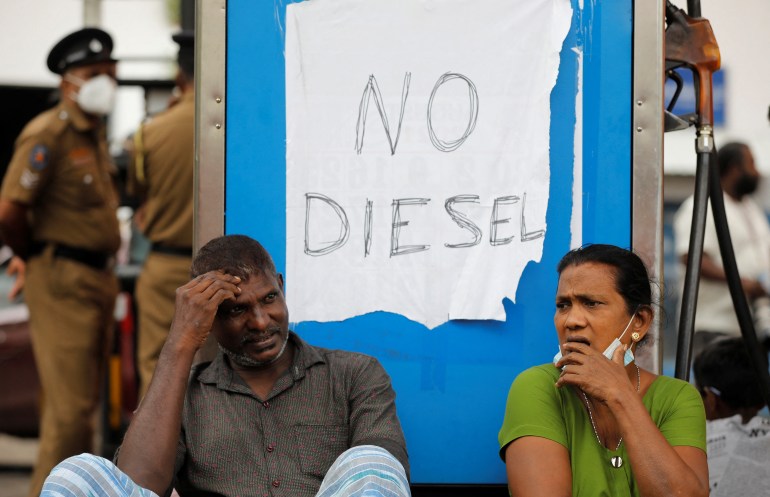
Inflation could rise to a staggering 40 percent in the next couple of months but it was being driven largely by supply-side pressures and measures by the bank and government were already reining in demand-side inflation, the governor said.
Inflation hit 29.8 percent in April with food prices up 46.6 percent year-on-year.
As anger against the government spreads, police fired tear gas and water cannon to push back hundreds of students protesting in Colombo on Thursday. They were demanding the removal of the president as well as the new prime minister.
The economic crisis has come from the confluence of the COVID-19 pandemic battering tourism, rising oil prices and populist tax cuts by the government of President Rajapaksa and his brother, Mahinda, who resigned as prime minister last week.
Critics accuse Wickremesinghe, appointed prime minister in his place, of being a stooge of the brothers, an accusation he denies.
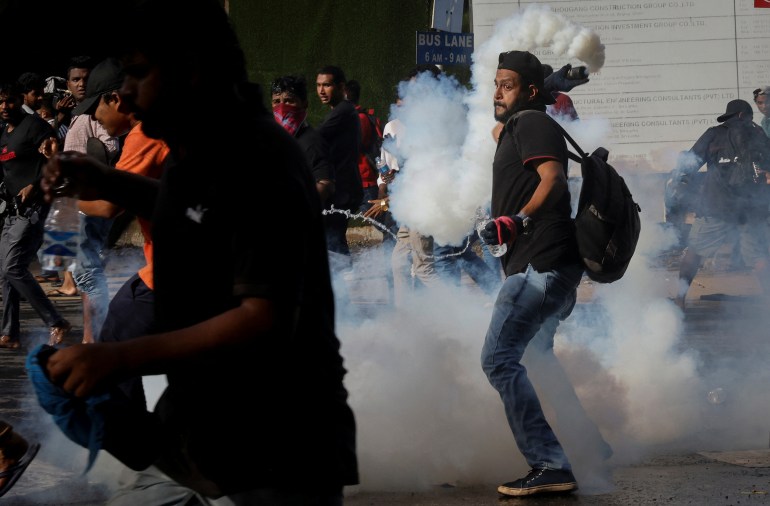
Other factors have included heavily subsidised domestic prices of fuel and the decision to ban chemical fertiliser imports.
The Group of Seven (G7) economic powers support efforts to provide debt relief for Sri Lanka, group finance chiefs said on Thursday in a draft communique from a meeting in Germany after Sri Lanka defaulted on its sovereign debt.
Central bank chief P Nandalal Weerasinghe has said plans for debt restructuring were almost finalised and he would be submitting a proposal to the cabinet soon.
“We are in preemptive default,” he said. “Our position is very clear, until there is a debt restructure, we cannot repay.”
A spokesperson for the International Monetary Fund said it was monitoring developments very closely and a virtual mission to Sri Lanka was expected to conclude technical talks on a possible loan programme on May 24.